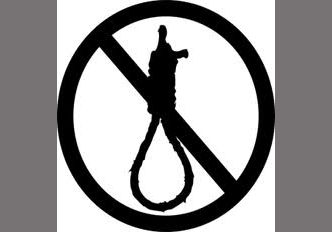An opinion piece by Emerlynne Gil, ICJ Senior International Legal Adviser in Bangkok.
In the next few days, the House of Representatives may vote in plenary on the bill proposing to bring back the death penalty in the Philippines.
Curiously, when this bill was being heard at the Sub-Committee on Judicial Reforms in Congress, the Department of Justice (DOJ) and the Philippine National Police (PNP) presented scant evidence in support of the proposed measure.
It was as if they were confident that the bill would get passed anyway, regardless of the facts.
Even more curious is that the committee report on the hearings on this bill did not reflect the arguments presented by anti-death penalty groups.
In fact, the committee report did not discuss at all what transpired during the hearings.
I doubt that members of Congress really ruminated on both sides of the debate on this issue.
I think congressmen will vote to pass this bill not because they genuinely believe death penalty will deter crime, but it will be their sycophantic gesture to please President Rodrigo Duterte, who they think will grant them political favors if they do what he wants.
There will also be others who will vote for this bill because of pressure from the party leadership.
Nobody will openly admit this. They will point to public opinion. They will claim that Filipinos are clamoring for the death penalty. Hence, their support for the bill.
Looking at social media comments and online opinion polls, one could indeed get the impression that many Filipinos want the death penalty back. However, social media comments and online polls do not use valid scientific methodology for random selection of participants. Furthermore, even when appropriate methodologies are used, results can be easily affected by how the questions are framed.
In 2012, the Bar Council of Malaysia and the Death Penalty Project, a UK-based non-governmental organization, conducted a study on the public’s views on mandatory death penalty in Malaysia.
At the outset of the survey, majority of the respondents said that they were in favor of the death penalty – whether it was discretionary or mandatory.
Ninety-one percent (91%) said they were in favor of death penalty for murder, 74 percent to 80 percent were in favor of the death penalty for drug trafficking (depending on the drug concerned), while 83 percent were in favor of death penalty for the discharge of firearms during the commission of certain crimes.
However, when asked to ‘judge’ specific cases, there was a significant difference between support of the respondents at the beginning and their support after they have been faced with ‘real’ cases.
When respondents were asked whether they would still support the death penalty after being shown cases where innocent persons were executed, the numbers of those in favor of death penalty for murder drastically fell to 33 percent, for drug trafficking to 26 percent, and for the discharge of firearms to 23 percent.
Even leaving aside the unscientific nature of comment forums and online polls, there is no evidence that the members of the public responding to questions about the death penalty have had their initial beliefs tested in the ways set out above.
We simply do not know with any certainty what the well-informed public opinion on this question would be.
Political leadership, not public opinion, matters most in preventing the death penalty from being brought back.
President Duterte openly said he wants to bring death penalty back, but he, alone, is not the Philippines’ political leadership.
It is imperative for Philippine lawmakers to act as independent leaders now and show the public how death penalty is deeply incompatible with human dignity. They have to see that the imposition of the death penalty is a violation of the right to life and the absolute prohibition of torture and other cruel, inhuman or degrading treatment or punishment.
The ICJ has previously said that the imposition of the death penalty is a violation of the right to life and the absolute prohibition of torture and other cruel, inhuman or degrading treatment or punishment.
As a party to the Second Optional Protocol to the International Covenant on Civil and Political Rights (ICCPR), the Philippines has a legal obligation to ensure that no person within its jurisdiction will face execution.
If the Philippines adopts a law bringing back the death penalty, it will violate its commitments under international law and would stand in opposition to the international trend towards the abolition of the death penalty.
The Philippine Constitution was designed so that the country’s democracy will not be held hostage by one man.
This bill will be one of the very many tests in the next few years on how well established and how strong Philippine democracy has become.

